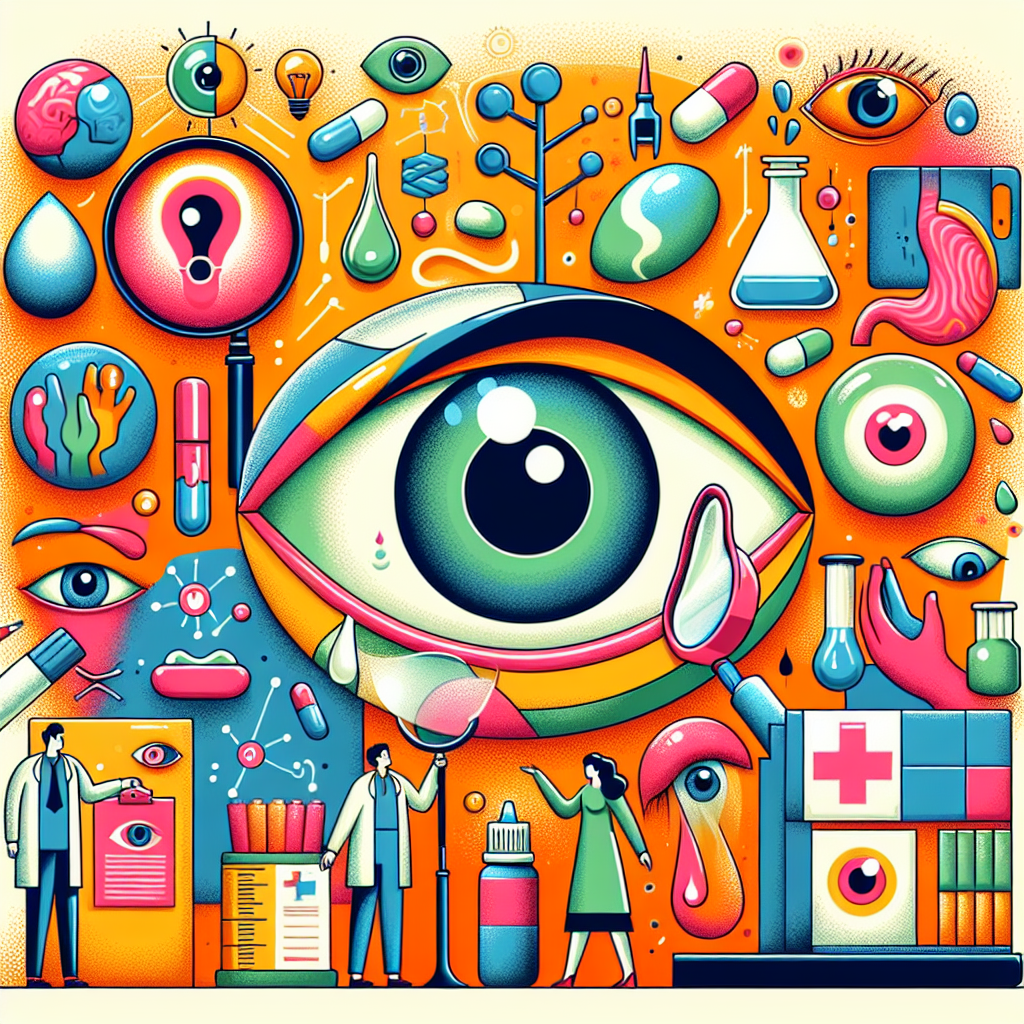Introduction
The eyes are the windows to the soul, yet when they become dry, they can feel more like sandpaper than portals of insight. In our modern world, where screens captivate our attention and pollution clouds our vision, dry eyes have become an all too common ailment. But fear not, for ophthalmologists—the guardians of ocular health—are here to guide us through this desert of discomfort with their expert recommendations.
- Understanding Dry Eyes
- Common Causes of Dry Eyes
- Ophthalmologists’ Recommendations
- Lifestyle Changes to Alleviate Symptoms
- Treatment Options
- Key Takeaways
- Frequently Asked Questions
- Conclusion
Understanding Dry Eyes
Imagine a landscape devoid of rain—a place parched, cracked, and yearning for moisture. This is what your eyes experience when they suffer from dryness. The medical term for this condition is keratoconjunctivitis sicca, an ailment characterized by insufficient or poor-quality tears. Tears are vital; they lubricate the eyes, wash away foreign particles, and provide nutrients essential for maintaining eye health. Without adequate tear production or quality, the eyes become irritated and inflamed.
Common Causes of Dry Eyes
Dry eyes can be as elusive as a mirage in the desert. They arise due to various factors, such as:
- Age: As we age, our tear production tends to decrease.
- Environment: Wind, smoke, and dry climates can accelerate evaporation of tears.
- Screen Time: Staring at screens reduces blink rate, leading to dry eyes.
- Medical Conditions: Diseases such as diabetes and thyroid disorders can affect tear production.
- Medications: Antihistamines, antidepressants, and blood pressure medications can contribute to dryness.
Ophthalmologists’ Recommendations
Artificial Tears: A Quenching Oasis
When natural tears fall short, artificial tears come to the rescue. Ophthalmologists often recommend over-the-counter artificial tears to supplement natural moisture. These drops mimic real tears and can be used multiple times a day without side effects.
Nutritional Supplements: Feed Your Eyes
Omega-3 fatty acids found in fish oil are beneficial for eye health. Studies suggest that these supplements can improve the quality of tears and reduce inflammation. For more information on maintaining overall health, visit [American Academy of Ophthalmology](https://www.aao.org).
Warm Compresses: Soothing Relief
A warm compress applied over the eyelids can help unclog blocked oil glands, which play a crucial role in tear production. This simple practice can provide immediate relief and improve tear quality.
Lifestyle Changes to Alleviate Symptoms
You don’t need to embark on an arduous journey to find relief from dry eyes. Simple lifestyle changes can make a significant difference:
- Blink More Often: Make a conscious effort to blink fully and frequently, especially when using digital devices.
- Humidify Your Environment: Use a humidifier indoors to maintain moisture in the air.
- Stay Hydrated: Drinking plenty of water helps maintain overall hydration levels, including eye moisture.
Treatment Options
If over-the-counter solutions fail to quench your eyes’ thirst, it’s essential to seek professional care. Ophthalmologists might suggest treatment options like prescription medications or procedures like punctal plugs to retain natural tears. Explore comprehensive eye infection and stye treatment services for clearer vision at [Immediate Care Westmont](https://www.immediatecarewestmont.com/eye-infections-sties/).
Key Takeaways
- Consult an ophthalmologist for personalized advice on managing dry eyes.
- Artificial tears and omega-3 supplements are commonly recommended by experts.
- Simple lifestyle adjustments can significantly alleviate symptoms.
Frequently Asked Questions
Can dry eyes cause long-term damage?
If left untreated, chronic dry eyes can lead to complications such as eye infections or damage to the corneal surface. It’s crucial to address the issue early on.
Are there any surgical options for treating dry eyes?
Certain surgical procedures, like punctal occlusion, may be considered for severe cases. Consult with an ophthalmologist for options tailored to your condition.
Conclusion
Navigating the desert of dry eyes need not be a solitary journey. With the guidance of ophthalmologists and the oasis of knowledge they provide, you can restore comfort and clarity to your vision. Embrace these expert recommendations and lifestyle changes to ensure your eyes remain as vibrant and expressive as ever. For immediate assistance with urgent care needs, explore our [urgent care services](https://www.immediatecarewestmont.com/urgent-care-services/).
Your eyes deserve the best care—let them shine bright and clear once more!




